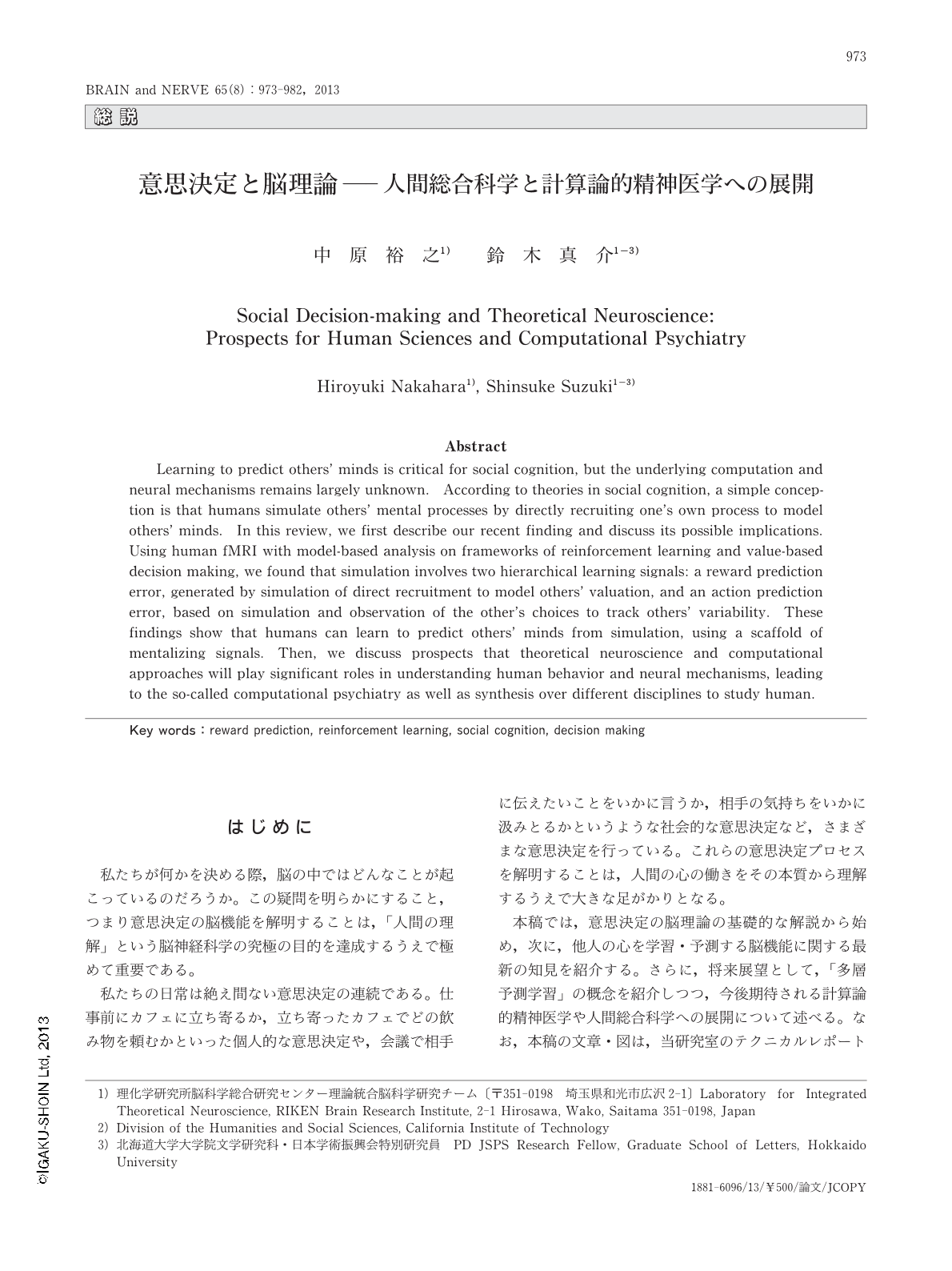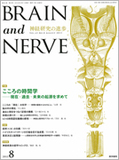Japanese
English
- 有料閲覧
- Abstract 文献概要
- 1ページ目 Look Inside
- 参考文献 Reference
はじめに
私たちが何かを決める際,脳の中ではどんなことが起こっているのだろうか。この疑問を明らかにすること,つまり意思決定の脳機能を解明することは,「人間の理解」という脳神経科学の究極の目的を達成するうえで極めて重要である。
私たちの日常は絶え間ない意思決定の連続である。仕事前にカフェに立ち寄るか,立ち寄ったカフェでどの飲み物を頼むかといった個人的な意思決定や,会議で相手に伝えたいことをいかに言うか,相手の気持ちをいかに汲みとるかというような社会的な意思決定など,さまざまな意思決定を行っている。これらの意思決定プロセスを解明することは,人間の心の働きをその本質から理解するうえで大きな足がかりとなる。
本稿では,意思決定の脳理論の基礎的な解説から始め,次に,他人の心を学習・予測する脳機能に関する最新の知見を紹介する。さらに,将来展望として,「多層予測学習」の概念を紹介しつつ,今後期待される計算論的精神医学や人間総合科学への展開について述べる。なお,本稿の文章・図は,当研究室のテクニカルレポート(BSI-ITN Tech Report No. 13-02)をもとに起こしたものであることを付記しておく。
Abstract
Learning to predict others' minds is critical for social cognition, but the underlying computation and neural mechanisms remains largely unknown. According to theories in social cognition, a simple conception is that humans simulate others' mental processes by directly recruiting one's own process to model others' minds. In this review, we first describe our recent finding and discuss its possible implications. Using human fMRI with model-based analysis on frameworks of reinforcement learning and value-based decision making, we found that simulation involves two hierarchical learning signals: a reward prediction error, generated by simulation of direct recruitment to model others' valuation, and an action prediction error, based on simulation and observation of the other's choices to track others' variability. These findings show that humans can learn to predict others' minds from simulation, using a scaffold of mentalizing signals. Then, we discuss prospects that theoretical neuroscience and computational approaches will play significant roles in understanding human behavior and neural mechanisms, leading to the so-called computational psychiatry as well as synthesis over different disciplines to study human.

Copyright © 2013, Igaku-Shoin Ltd. All rights reserved.


